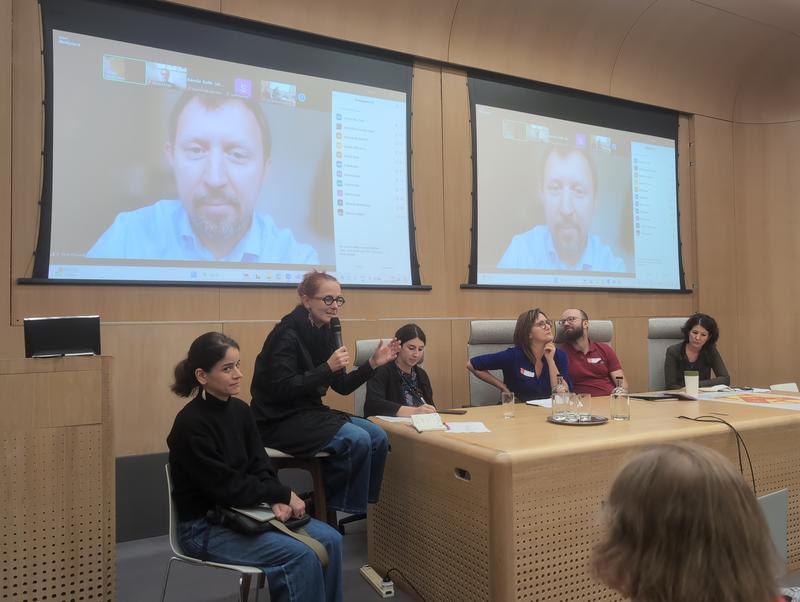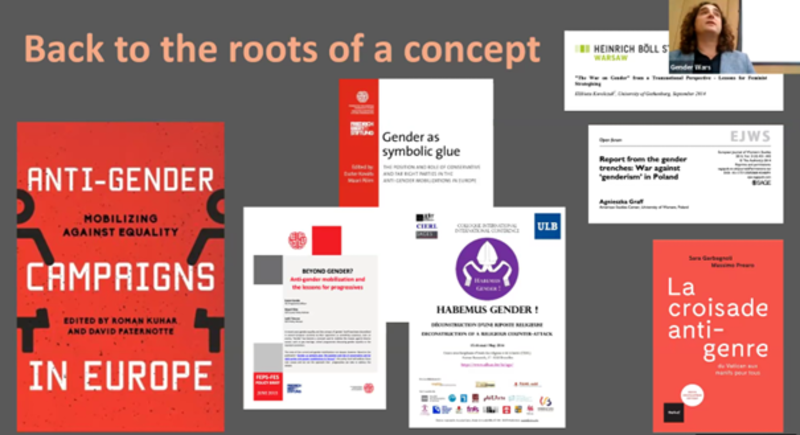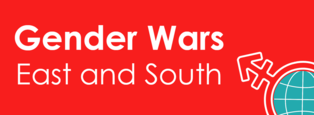Gender Wars: East and South Closing Conference
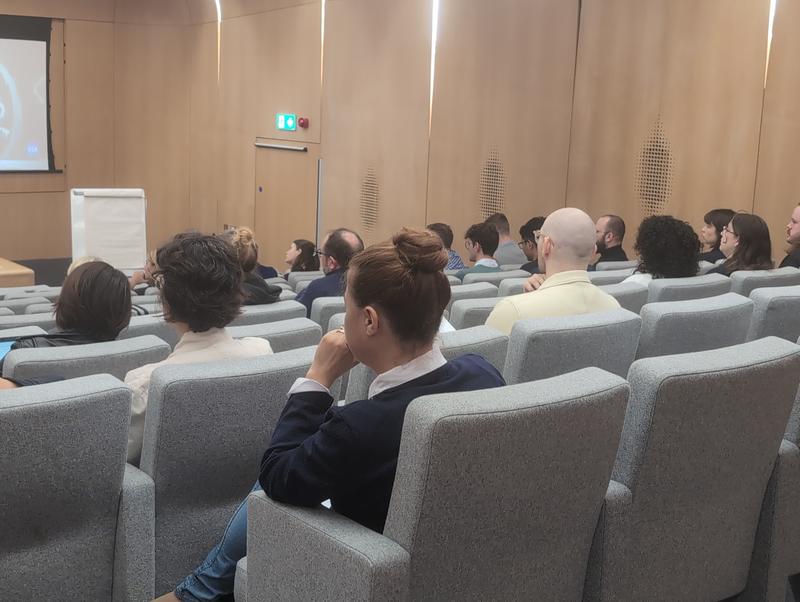
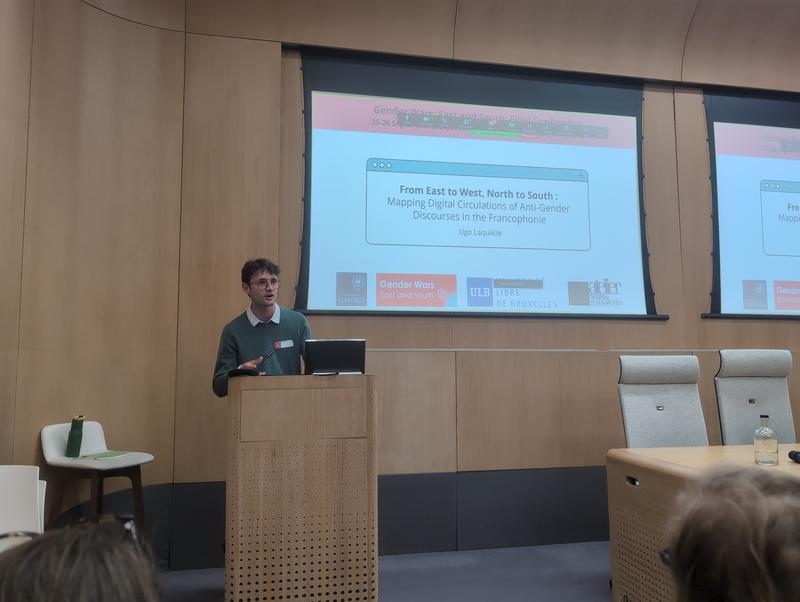
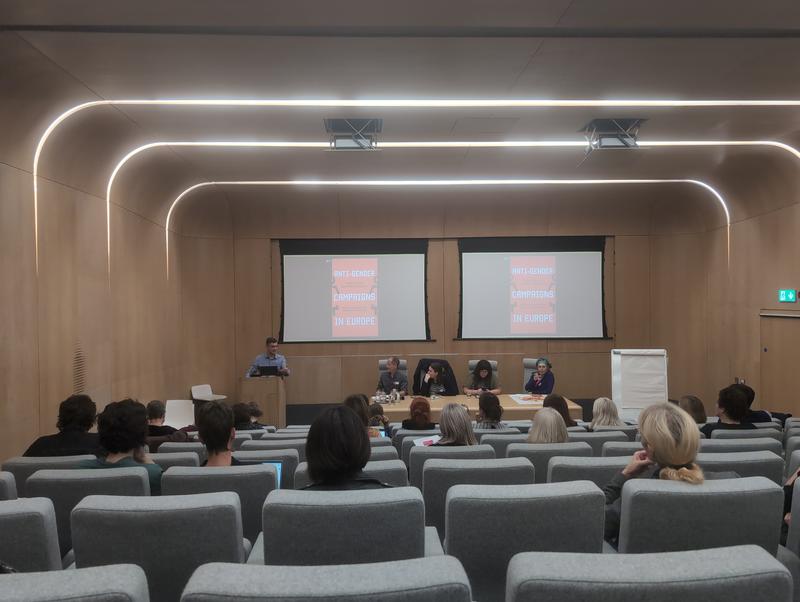
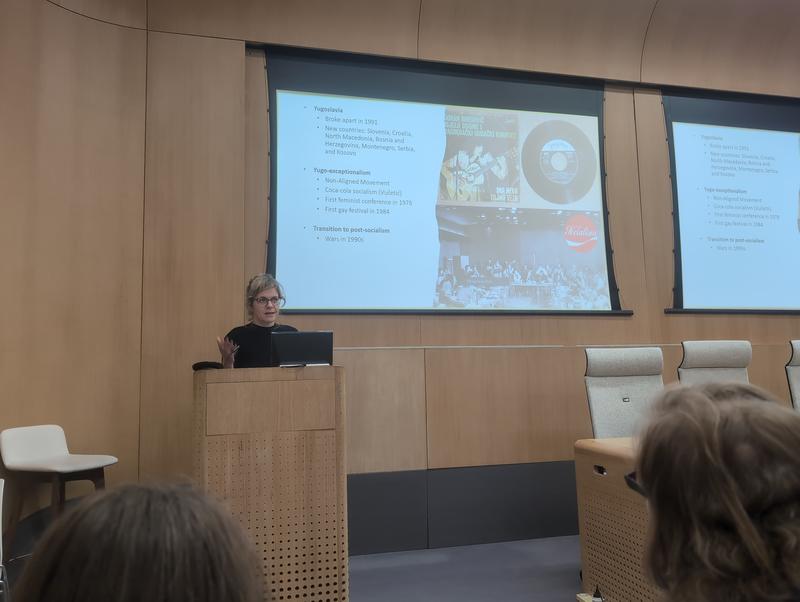
For the past two years, the Gender Wars: East and South research network has been exploring the cross-regional cultural, historical, and political implications of increasing challenges to women’s and LGBTQ+ rights in Central Eastern Europe and Latin America. Our aim has been to provide a more nuanced understanding of the intersections of history, religion, sexuality, and gender have contributed to a backlash against women’s and LGBTQ+ rights in both regions by fostering a series of cross-regional, interdisciplinary discussions between network members, invited guests, and audiences in Oxford, Warsaw, Brasilia, and online. Across eight talks, seminars, and workshops, we explored the intersections of right-wing politics and authoritarianism, religion, gender, and sexuality in both regions, and discussed how their shared histories of colonialism and post-colonial power structures have influenced contemporary anti-gender movements. Recordings of most of these events can be accessed here: https://genderwars.web.ox.ac.uk/news.
We held a final project conference on the 25th and 26th of September 2024 at St Antony’s College, Oxford. Bringing together twenty speakers and an audience of around 100 in-person and online, the event offered a dynamic platform for scholars from across Europe and Latin America to present comparative studies and case analyses related to these pressing issues. The conference was opened by a keynote by David Paternotte, discussing the genesis of the concepts and term ‘anti-gender campaigns’, and questioning the extent of its further analytical usefulness. The keynote was followed by the session “Transnational and Local Histories of Anti-Genderism” which set the stage for a broader understanding of how anti-gender movements have developed historically across regions. It included papers by Piotr H. Kosicki and Sylwia Kuźma-Markowska’s exploration of Polish-Latin American exchanges on pro-life activism and Wannes Dupont discussed how religious and secular discourses shaped post-War discussions on reproduction and demographics in the UN. Other papers, such as Anna Dobrowolska’s analysis of late-socialist crisis and visual masculinities pre-1989 Poland and Nađa Bobičić’s and Vanja Petrović’s paper on the role of right-wing political actors in Serbia, highlight the long-standing roots of anti-genderism in various regions.
Following a coffee break, discussions shift toward transregional networks and the spread of anti-genderism through different cultural and political landscapes. Ugo Laquièze presented a paper mapping of anti-gender discourses of anti-gender discourse pathways across Europe, Latin America, and Africa, Adriana Zaharijević and Roman Kuhar discussed mobilizations in the post-Yugoslav space. This session highlighted the interconnectedness of anti-gender movements across borders and how they have evolved in different contexts; Barbora Doležalová rounding off the session talking about the little-studies example of Malta. The day concluded with the opening of an exhibition by Karol Radziszewski, the resident artist for the Gender Wars: East and South project. You can read more about the exhibition and see pictures of the work here: https://genderwars.web.ox.ac.uk/article/karol-radziszewski-gender-wars
Flávia Biroli kicked off the second day of the conference with a keynote on the anti-gender activism in Brazil, offering a critical perspective on how these movements have taken shape in Latin America. Later sessions, such as “Anti-Gender Activisms: Case Studies in Comparative Perspective,” featured case studies from multiple countries across the two regions. Rodrigo Cruz examined how right-wing gay men in Brazil oppose gender-inclusive policies, while Katalin Fábián focused on Hungary to discuss the rise of anti-trans feminists and their role in broader culture wars. Sticking to Central and Eastern Europe, Julia Laureau spoke about organized antifeminism in Poland, and Ionela Băluță looked at Romania's education system as a battleground for gender debates.
In the final session, “Resisting Anti-Genderism: Legal and Activist Strategies,” explored how advocacy coalitions and legal strategies have been employed to counter misogyny, homophobia, and transphobia. Piotr Godzisz explored the role of advocacy coalitions in addressing misogyny and homophobia in Poland, while Lourdes Peroni and Marta Bucholc examined the intersections of law and religion in the fight against anti-genderism in European and Latin American human rights courts. The session also features discussions on pro-choice activism in Poland by Katarzyna Zielińska, on the use of European courts to defend sexual minorities by Beata Huszka, and the realities faced by feminist and queer activists in Armenia by Amelia Barnes. Offering hope for future resistance against anti-equality policies and violence (including discursive and legal violence), this session highlighted the ongoing efforts to combat anti-gender policies and provided a forward-looking perspective on activism in the face of adversity.
We thank all the speakers and participants for two wonderful days of stimulating discussions – at the sessions and over food and drinks!
